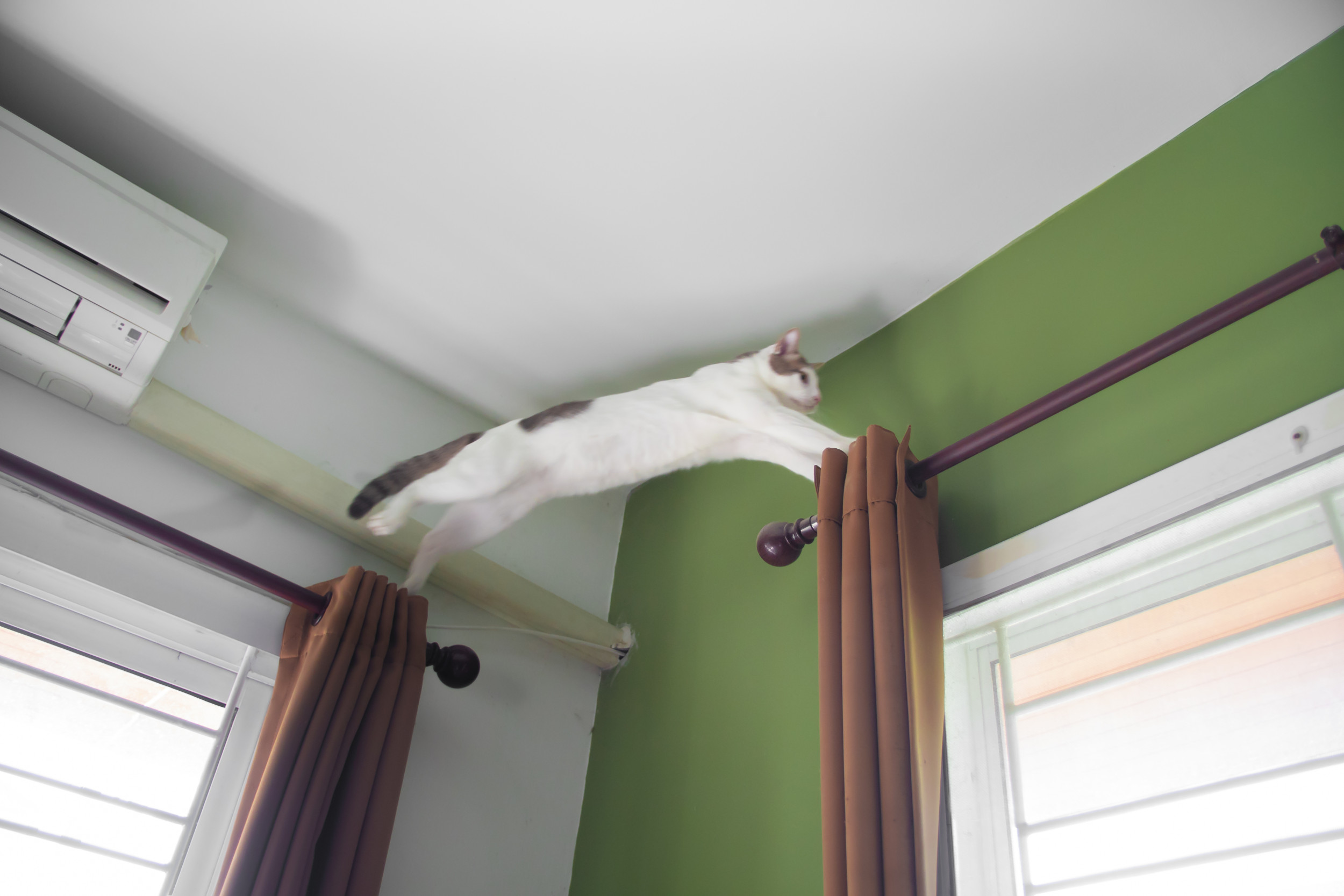
A pet owner’s home security camera has revealed exactly what her mischievous cat gets up to while the rest of the house sleeps—and viewers are loving every second.
At 3 a.m., the video shows the feline racing around the room in a frenzied display of late-night energy. She leaps over a fallen box, pounces on invisible prey and zooms from one side of the room to the other.
Halfway through, two glowing eyes suddenly appear in the darkness: they belong to the household’s black Chihuahua, Ambrose, caught in the middle of the unexpected feline performance.
In the comments, the cat’s owner wrote: “I always hear ‘galloping’ when she’s sprinting across the laminate.” Another viewer compared the acrobatic display to “a ballet.”
Why Cats Come Alive at Night
Many assume cats are nocturnal, but that is a myth. Cats are crepuscular, meaning they are naturally most active at dawn and dusk. Some felines will extend their energetic bursts into the night, but they are not truly nocturnal animals.
Newsweek previously spoke to veterinarian Dr. Cathy Lund from the American Association of Feline Practitioners (AAFP).
She said that cats retained many of the biological traits of their wild ancestors, which sees them “awake and hunting at the most opportune times.”
“Carnivores are hard-wired to sleep much more than prey species, and cats are unique in their ability to move from deep sleep to wakefulness without any of that grogginess so familiar to us humans. In fact, cats are so adept at falling asleep that they were used as models of REM sleep in early sleep research studies,” Lund said.
Tips to Keep Nighttime Cat Chaos in Check
According to the Animal Humane Society, you can coexist peacefully with a night-loving cat by gently shifting their schedule and managing their environment so that everyone can sleep soundly.
Don’t reward the behavior: Avoid feeding, playing, or even scolding your cat when they wake you. Any attention reinforces the habit.
Provide evening exercise: Schedule interactive play sessions—using teasers, laser pointers or fetch—early in the evening to tire them out.
Create daytime stimulation: Use food-dispensing toys while you are away to mimic a hunt and keep them mentally and physically active.
Manage the nighttime environment: Shut your bedroom door or use a towel to prevent rattling. White noise or earplugs can help you sleep through any lingering sounds.
Never punish your cat: Nighttime energy isn’t misbehavior—it is instinctual. Punishment can create stress and harm your relationship.
Newsweek reached out to @ambrosethechi for comment via TikTok. We could not verify the details of the case.



